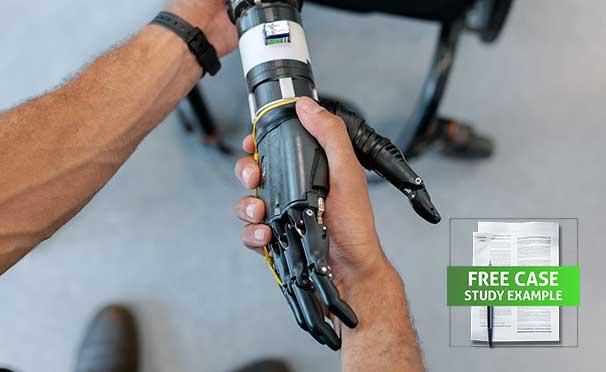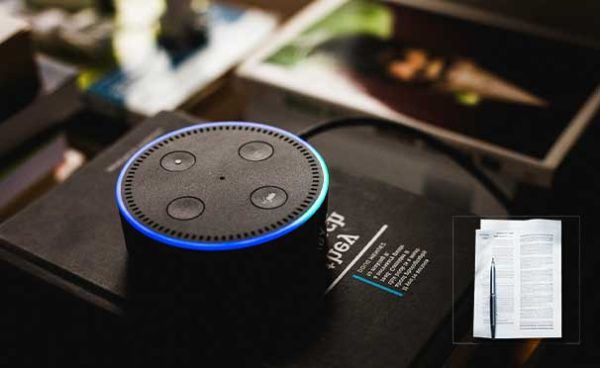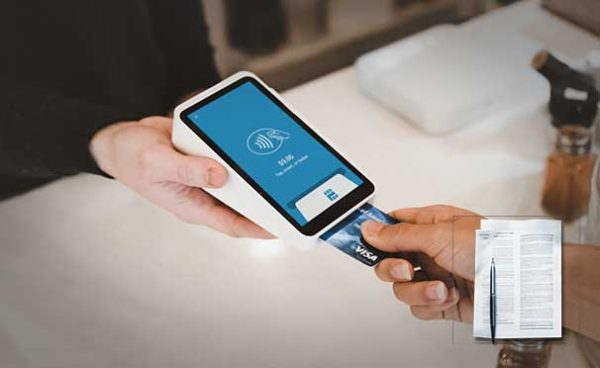3D Printing Revolutionizes Prosthetics Manufacturing – CCSE
No Fee
| Case ID: | IS.3DP.20230623.1.V3 |
|---|---|
| License: | CC BY-NC-SA 4.0 |
| Pages | 3pgs |
| Case Study Analysis | Not Included |
| Teaching Notes | Not Included |
| Ai Level | Content co-authored with the OpenAI API |
| Category(s) | Information Systems: 10 |
| Access | Free Download |
“3D Printing Revolutionizes Prosthetics Manufacturing” is a 3-page case study that explores how MakerBot Industries transformed the field of prosthetics manufacturing through the application of 3D printing technology. The case delves into the inefficiencies and high costs traditionally associated with prosthetics production, and details MakerBot’s innovative approach to overcome these challenges. The company’s journey, from recognizing the problem to executing a successful strategy, serves as an inspiration for disruptive innovation. The case provides insights into MakerBot’s efforts to develop customized, cost-effective, and quickly-produced prosthetics, leading to an improved quality of life for end-users. It offers an in-depth understanding of the far-reaching impact of technology on traditional industries, making it a valuable resource for business professionals, students, tech enthusiasts, healthcare professionals, and policymakers. The MakerBot case study stands as a testament to the potential societal benefits of business innovation and the transformative power of technology.
Analysis:
Top 5 Course Categories with Ratings (out of 10):
- Information Systems: 10 - This case presents a clear application of technology (3D printing) in the operations of a business (MakerBot Industries), making it a solid fit for an Information Systems course.
- Entrepreneurship: 9 - MakerBot's initiative to revolutionize an industry through innovative use of technology and strategic partnerships resonates strongly with entrepreneurship.
- Operations Management: 8 - The case explores how 3D printing can streamline and transform traditional manufacturing processes, making it relevant to Operations Management.
- General Management/Strategy: 8 - MakerBot's approach and execution of their strategic vision make the case a useful tool for learning in General Management/Strategy.
- Ethics: 7 - While not the primary focus, the case does touch on societal benefits and the role of business in societal good, which is an important part of Ethics.
Weaknesses of this Case Structure:
- Lack of Financial Data: While the case mentions that costs have been reduced significantly, it fails to provide concrete financial data to support this claim. Real numbers or a cost comparison between traditional methods and MakerBot's 3D printed prosthetics would strengthen the case.
- Length: Given its brevity, the case does not delve deeply into the challenges MakerBot faced and how they were overcome. An expanded case could provide a richer exploration of the company's journey, including internal challenges, competitive landscape, and market reception.
- Limited Stakeholder Perspective: The case mainly presents MakerBot's perspective. Inclusion of patient testimonials, healthcare provider viewpoints, or competitor responses would provide a more holistic view of the situation.
- Predictive Analysis: The case does not provide future implications or predictions for the industry, limiting its usefulness for strategic planning and future business scenario analysis.
Strengths of this Case:
- Topical Relevance: The case tackles a timely and relevant issue - the application of 3D printing in the healthcare industry. It allows learners to understand the intersection of technology and healthcare and its potential impacts.
- Real-world Application: The case presents a tangible example of an innovative company disrupting a traditional industry, offering a practical perspective that complements theoretical learnings.
- Clear Narrative: The structure of the case, from problem identification to strategy and outcome, provides a coherent narrative that facilitates understanding of the entrepreneurial journey.
- Broad Appeal: The case's relevance extends beyond a single discipline, making it a valuable teaching resource for various courses like Information Systems, Entrepreneurship, and Operations Management.
- Societal Impact: The case provides a clear demonstration of how business innovation can drive societal good, fostering discussion around ethical considerations and the role of businesses in society.
Forward:
In this era of accelerated technological advancement, it is increasingly crucial to explore and understand the transformative effects that emerging technologies can exert on traditional industries. One such game-changing technology, 3D printing, serves as the central theme in the following case study featuring MakerBot Industries, a pioneer in the field.
Since its founding in 2009, MakerBot has been pivotal in pushing the boundaries of what's possible with 3D printing technology. The company has not only been successful in demonstrating the power and potential of 3D printing, but it has also shown the world its practical applicability across a broad range of industries. One such field is prosthetics manufacturing, an area that, until recently, was constrained by inefficiencies, high costs, and a general lack of customization.
This case study invites you on a journey through MakerBot's visionary approach to tackle these long-standing industry issues. It presents a detailed account of how the company capitalized on the capabilities of 3D printing to redefine and transform the prosthetics landscape fundamentally.
From recognizing the problem, devising an innovative strategy, to its successful execution, the MakerBot story is an inspiring example of disruption and innovation. It's an exploration of how the audacity to reimagine traditional production methods coupled with cutting-edge technology can lead to solutions that drastically improve the quality of life for people across the globe.
As you delve into the case, you will witness the transformative power of technology, the strength of strategic partnerships, and the potential for economic viability that combines innovation with societal impact. But most importantly, the MakerBot case study serves as a testament to how business can significantly influence societal good, making it an essential read for not only business professionals and students but also for technology enthusiasts, healthcare professionals, and policymakers alike.
As we stand on the brink of the Fourth Industrial Revolution, where the physical, digital, and biological worlds are converging, let this case study inspire you, provoke your thoughts, and kindle your imagination about the realm of possibilities that 3D printing, and technology as a whole, can unfold.





